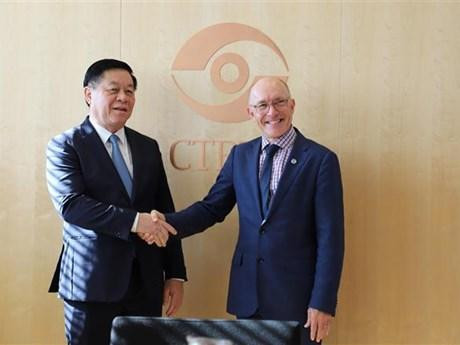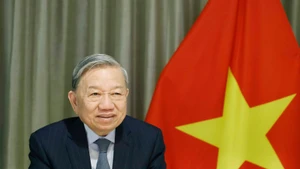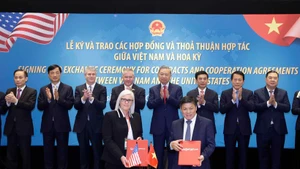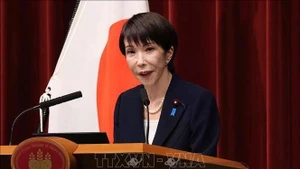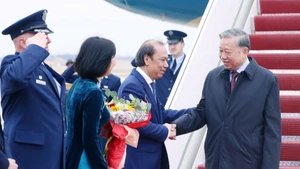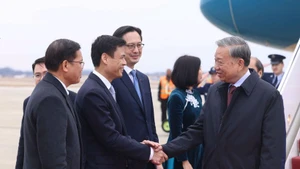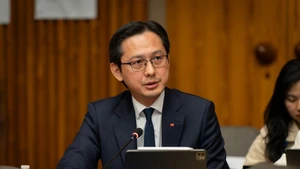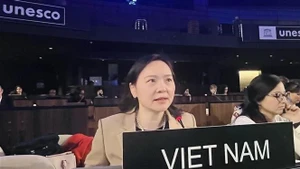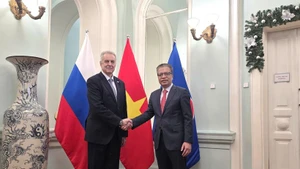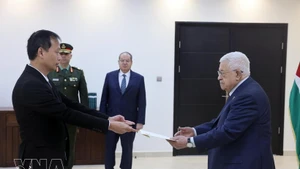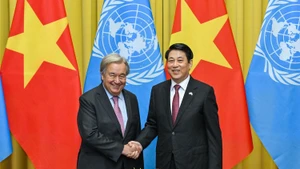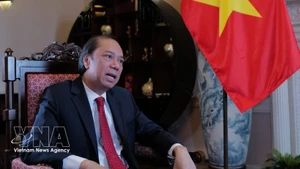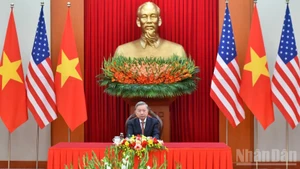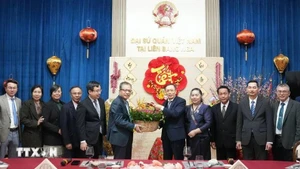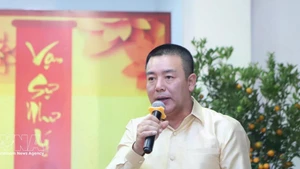During the visit, the Vietnamese delegation had working sessions with Harald Troch, deputy head of the Human Rights Committee of the Foreign Relations Committee of the Austrian Parliament; Maria Maltschnig, secretary in charge of international relations of the Social Democratic Party of Austria; and Robert Floyd, Executive Secretary of the Comprehensive Nuclear-Test-Ban Treaty Organisation (CTBTO).
The delegation also visited the Research and Laboratory Centre of the International Atomic Energy Agency (IAEA) and talked with the staff of the Vietnamese Embassy and representatives of Vietnamese intellectuals in the European country.
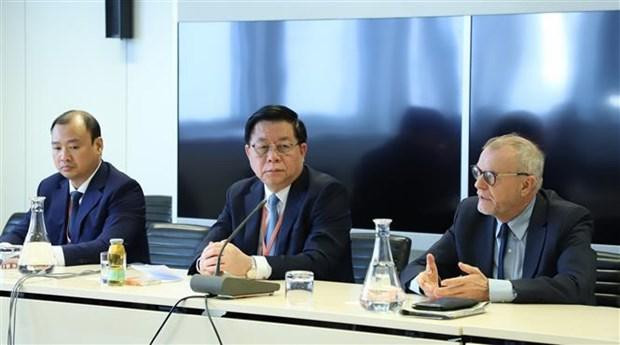 |
| Secretary of the CPV Central Committee and Chairman of its Commission for Information and Education Nguyen Trong Nghia (C) at the meeting with Austrian officials. (Photo: VNA) |
During the working sessions with the Austrian officials, Nghia affirmed that Vietnam attaches importance to cooperative ties with Austria as the two nations are celebrating the 50th founding anniversary of diplomatic ties this year.
He reaffirmed Vietnam’s foreign policy of independence, self-reliance, multilateralisation and diversification of international relations, and active and proactive international integration. Vietnam wants to deepen Vietnam-Austria ties in particular and Vietnam - European Union (EU) relations in general, including consolidating the friendship and cooperation, and increasing meetings and exchanges with Austrian political parties, and party groups in the European Parliament (EP), Nghia said.
In the process of scientific and technological development, Vietnam advocates promoting research and effective application of the nuclear energy industry’s achievements for peaceful purposes and sustainable development, especially in the fields of health, agriculture, industry and environmental protection, Nghia said.
In addition to its consistent stance on nuclear non-proliferation, Vietnam has always striven to be an active and responsible member of multilateral international institutions on atomic energy such as the IAEA, the Comprehensive Nuclear-Test-Ban Treaty (CTBT) and CTBTO, he said.
The Vietnamese official spoke highly of the role played by the CTBT in ensuring security and reducing the risk of nuclear crisis; and the CTBTO's mission to promote the soon enforcement of the CTBT.
Leaders of the Austrian parliament, Social Democratic Party of Austria, CTBTO and IAEA highly evaluated the delegation's working visit, saying it was an important milestone that contributed to consolidating and deepening relations between Vietnam and Austria, including ties between the CPV and political parties of Austria and between Vietnam and the CTBTO and IAEA.
They highlighted the fruitful development of the Vietnam – Austria relations across fields, within the framework of the Vietnam - EU relationship and multilateral mechanisms of which both countries are members.
The two sides agreed to enhance coordination in implementing the EU-Vietnam Free Trade Agreement (EVFTA) and promoting the Austrian Parliament to soon ratify the EU-Vietnam Investment Protection Agreement (EVIPA).
They also discussed the possibility of theory-policy exchanges between the Communist Party of Vietnam and the Social Democratic Party of Austria.
The Austrian officials congratulated Vietnam on its election to the UN Human Right Council, expressing their belief that Vietnam will take on this position well in the context of complicated developments in the world and the region.
According to the officials from the CTBTO and IAEA, there remains large room for the two sides to expand cooperation. The two sides discussed orientations and solutions to enhance the effective application of atomic energy to promote socio-economic development, as well as Vietnam’s effective participation in international organisations.
In his meeting with representatives of the Vietnamese Embassy and the Vietnamese community in Austria, Nghia highly valued the efforts of the embassy in promoting the Vietnam-Austria friendship and cooperation, and the relations between Vietnam and UN organisations in Austria, especially the CTBTO and IAEA.
He also affirmed that the overseas Vietnamese intellectual community is an integral part of the intellectual community in the home country, expressing his hope that they will continue to contribute to the homeland’s development and serve as a bridge promoting connections between the two countries.
